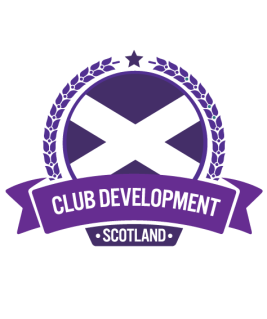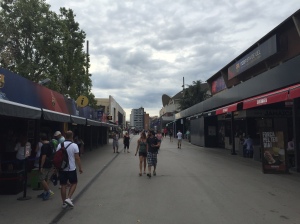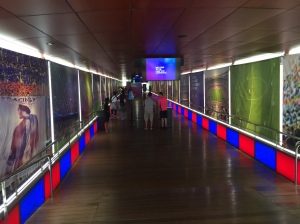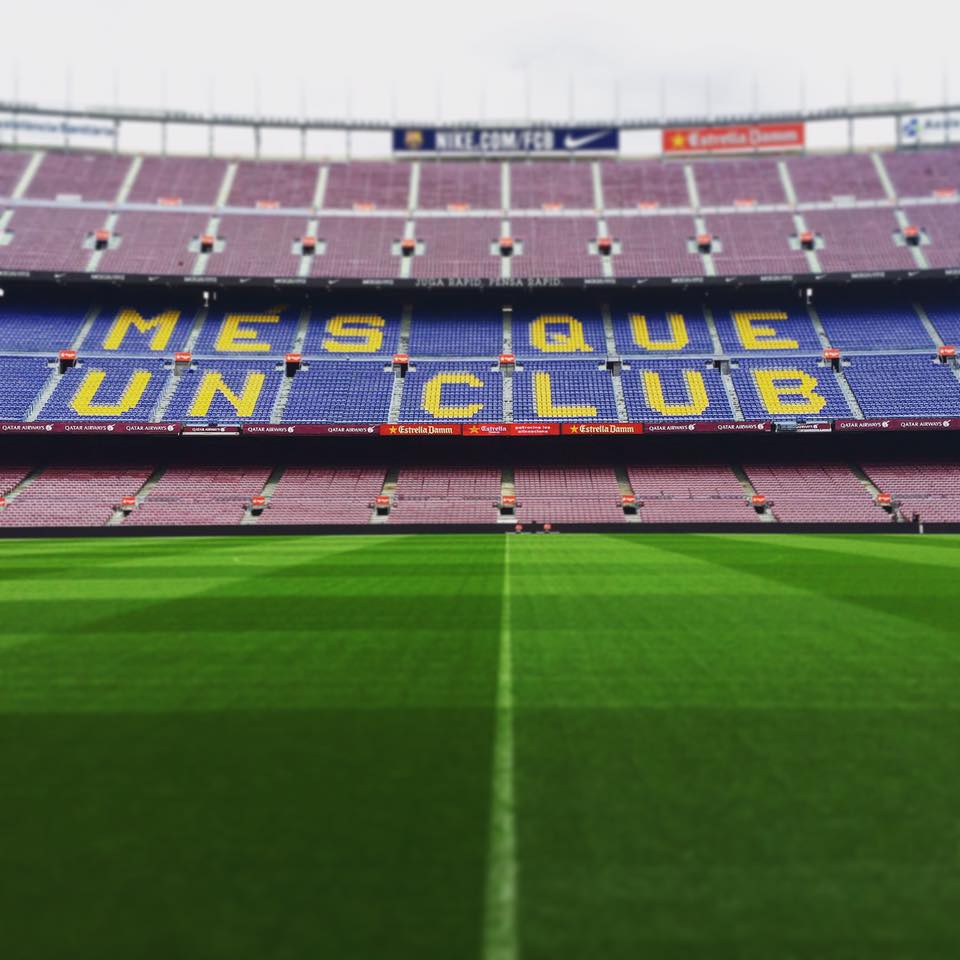Last week I was fortunate enough to visit the Nou Camp – which for me, as a football aficionado, was the highlight of my fleeting visit to Barcelona. The Nou Camp will feature on every fans’ Stadium ‘To-Do List’ and if it doesn’t, it perhaps should do. It was marketed as the ‘Nou Camp Experience’ and although somewhat pricey I didn’t begrudge the €23 entry fee for museum and stadium tour, as it was that fee alone for the view of the stadium from pitch side.
What struck me instantly upon walking through the gates was that this was essentially football’s answer to Disneyland with a whole village of complexes, merchandise stalls, eateries and bars surrounding you as you head to the jewel in the crown. This is something I’d be keen to see further within Scottish sport – stadiums at the heart of a community.
As you walk out of the tunnel onto the pitch and take in just what an incredible stadium the Nou Camp is, you are instantly struck with the words ‘Mes Que Un Club’ spelt out in yellow within the stands. ‘More Than A Club’. The club was created by foreigners and soon became a focal point for Catalonism, and when Francisco Franco banned the use of the Catalan language, the stadium of Barcelona became one of the few places the people could express their dissatisfaction, thus showing the ways in which sport and politics and wider society interact on so many levels.
Beyond the history of what differentiates it from others, it was the founder’s approach to being a ‘Multi Sport Club’, commitment to social responsibility and governance that really sets it aside.
FC Barcelona have a rink hockey department, an ice hockey team, a rugby league team, a basketball team and a futsal team (they also previously had a baseball team). The whole sport campus in which the stadium is based acts as a home for its other sports and the games of the other teams are advertised and promoted across the city, although they might not receive the level of attention the football club gets (which isn’t an issue unique to Spanish culture).
I like this approach and it’s something I’d be keen to see more clubs adopt within Scotland. What we can most relate this to is the rise in Community Sport Hubs, with clubs sharing assets and making them viable social enterprises through their cooperative approach. I like it not just from a sustainability perspective, but a developmental point of view for young people.
At the Scottish FA Convention last year, I was able to hear from the Assistant Manager of the Icelandic football team who spoke about their approach to youth development. Whereas in the UK, young children are often shoehorned into a sport and expected to play that sport alone, in Iceland, children play various sports until the age of 16, at which point they’ve developed a wider range of techniques and skills.
The club’s commitment to being more than a club also reaches their social responsibilities and they’re renowned for once paying Unicef to host their logo upon their shirt (very rare in the modern day where clubs think mainly as businesses, rather than assets of community and social benefit). The club continues to work with Unicef using sport as a tool for social development (sport’s ability to tackle the Sustainable Development Goals is worthy of a blog to itself) and their work and partnership is proudly displayed within the museum.
Finally what interested me about the ‘Barca Experience’ is the club’s pride in being a democratic member owned club. While there may be some issues about how you would come to run in an election to the be the club President, it’s important to note that is operated on a ‘one member – one vote’ system which in a day and age of clubs being public limited companies, is commendable its stayed true to its member owned roots (again, this is worthy of its own blog).
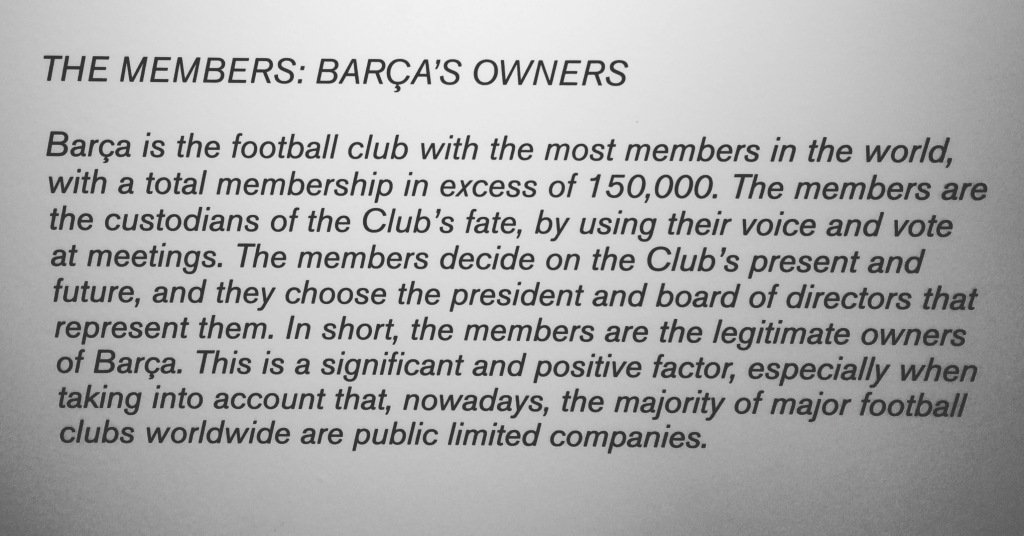
Our learnings?
- Member owned clubs can work at any level of sport (it’s not just for small clubs!)
- Multi Sport Clubs and Community Sport Hubs can help young people develop and they shouldn’t be pigeon holed into one sport from a young age
- More clubs, businesses and organisations should come together to share and make the most of community sport assets such as stadiums, pitches and other facilities
- Clubs should be assets of community with a responsibility to give back to tackle issues within local communities, but also abroad (and this doesn’t stop them being viable businesses).
Head of Supporters Direct Scotland & Club Development Scotland
You can find out more about our consultancy services and how we can help you grow a winning club by visiting clubdevelopment.scot.
